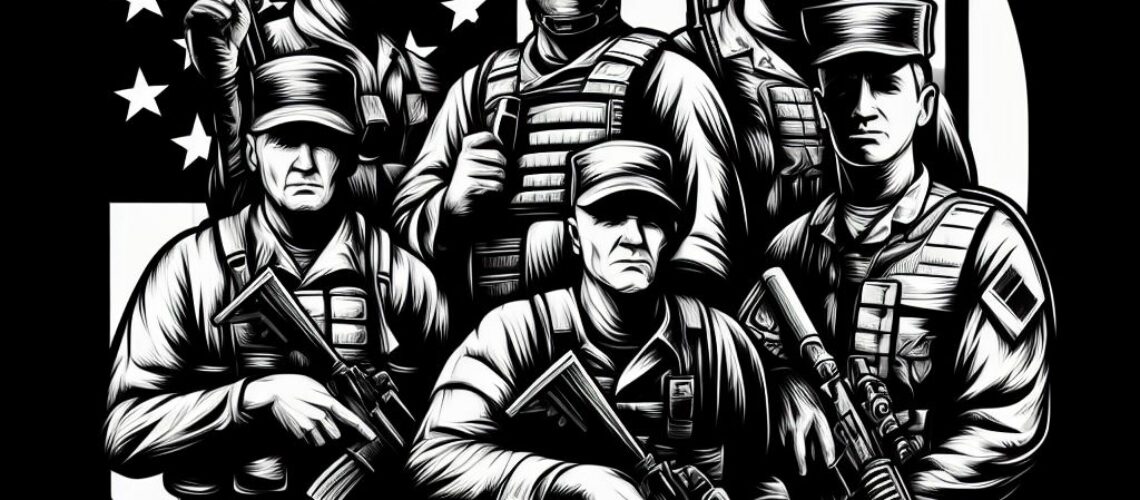The journey from military service to academic success is one that is both challenging and rewarding. This transition, experienced by many veterans, including the likes of Zachary Sanns, a former United States Marine turned history scholar, reveals a unique interplay between the skills and disciplines acquired in the military and their application in the realm of higher education. Veterans often find that the rigorous mental and physical training from their military experience becomes a solid foundation upon which they can build their academic careers. Furthermore, the transition is not just about academic growth but also personal development, as it involves adapting to new roles and environments.
For many veterans, the transition to academic life is marked by a shift from a structured, regimented environment to one that is more self-directed and intellectually demanding. The skills honed in the military, such as discipline, time management, and leadership, are invaluable assets in the academic setting. These qualities contribute significantly to their ability to excel in their studies and beyond. Additionally, the camaraderie and teamwork fostered in the military often translate into a strong sense of community and collaboration in academic projects and research.
Discipline, perhaps the most fundamental trait instilled in military personnel, plays a crucial role in academic success. Veterans like Sanns have demonstrated that the self-discipline acquired through military training is directly transferable to managing the rigors of academic life. This discipline is evident in their approach to coursework, adherence to deadlines, and the overall pursuit of academic excellence. The ability to stay focused and committed to long-term goals is a direct outcome of this disciplined approach, greatly benefiting their academic journey.
Time management is another critical skill that veterans bring to their academic endeavors. In the military, managing time efficiently is not just a necessity; it’s a survival skill. This ability to prioritize tasks and manage time effectively is a boon in the university setting, where students are often juggling multiple responsibilities. Veterans, with their ingrained sense of time management, are often better equipped to handle the demanding schedules of college life compared to their civilian counterparts. They can allocate appropriate time to studies, extracurricular activities, and personal commitments, maintaining a well-balanced academic life.
Leadership is another area where veterans excel. Military service often involves leading teams under challenging circumstances, a skill that is highly applicable in group projects and other collaborative academic settings. The leadership skills veterans acquire, characterized by decisiveness, responsibility, and the ability to motivate and guide others, make them natural leaders in the classroom and on campus. This leadership is not just about taking charge; it also involves listening to others, a skill equally valued in academic settings.
Moreover, veterans bring a unique perspective to the academic setting. Their experiences, often involving significant responsibilities and exposure to diverse cultures and situations, enrich classroom discussions and broaden the horizons of their peers. Their real-world experience can often provide a practical dimension to theoretical concepts, enhancing the learning experience for all. This diversity of thought and experience contributes to a richer, more inclusive academic environment, where different viewpoints are valued and explored.
However, it’s not without its challenges. The shift from a highly structured military life to the relatively unstructured world of academia can be disorienting. Veterans must adapt to a new environment where they are no longer just following orders but are required to be more autonomous in their learning and decision-making. This transition requires a period of adjustment and, often, a redefinition of identity. Finding a new sense of purpose and adapting to different social norms and expectations can be a significant part of this adjustment process.
Support systems within educational institutions play a crucial role in facilitating this transition. Programs specifically designed for veterans, including counseling services, mentorship programs, and veterans’ organizations on campus, provide the necessary support and guidance. These resources help veterans navigate the academic landscape, connect with fellow veterans facing similar challenges, and integrate more seamlessly into the university community. Additionally, such programs often offer academic advising and career counseling, which are vital in helping veterans translate their military experience into academic and career success.
Furthermore, the increasing recognition of military training and experience in the form of academic credits has also helped ease the transition for many veterans. By acknowledging and valuing the skills and knowledge acquired in the military, universities not only facilitate veterans’ academic progress but also honor their service. This recognition not only validates the veterans’ past experiences but also encourages them to pursue their educational goals with confidence and determination.
In conclusion, the journey from military service to academic success is a path trodden by many veterans, including Zachary Sanns, and is characterized by a unique blend of challenges and opportunities. The skills, perspectives, and experiences that veterans bring to the academic world enrich not only their own educational experience but also that of their peers and institutions. As more veterans make this transition, it is imperative for educational institutions to recognize and support their unique needs and contributions, ensuring that these individuals continue to thrive and succeed in their academic pursuits. These veterans not only enhance the educational landscape but also serve as role models for resilience, adaptability, and lifelong learning.

